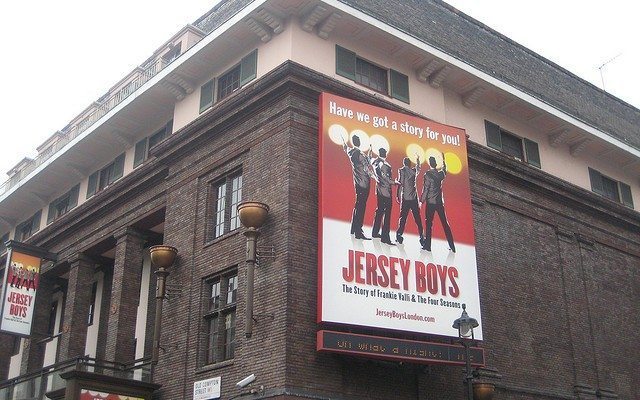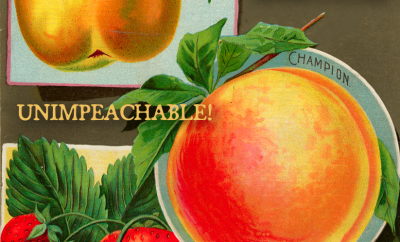 Image courtesy of [Andy Roberts via Flickr]
Image courtesy of [Andy Roberts via Flickr]
Entertainment
Jersey Boys Stuck in Copyright Suit
Thomas DeVito, an original member of the Four Season, contracted with a book publisher to write his autobiography three decades ago. They decided that Rex Woodward would help DeVito with the ghostwriting and the pair would split the proceeds from the book. Though they completed it, the book was never published it. In 1991, unbeknownst to Woodward, DeVito registered the book with the United States Copyright Office just four months before Woodward died. DeVito and fellow Four Seasons member Nicholas Macioci executed an agreement nearly ten years later with two other Four Seasons members, Frankie Valli and Bob Gaudio, that granted Valli and Gaudio the exclusive rights to “use and incorporate the Materials [from the unpublished book] in one or more theatrical productions, and any and all ancillary and subsidiary exploitations thereof,” which later became the smash Broadway hit, Jersey Boys.
Shortly before Jersey Boys debuted, Woodward’s widow, Donna Corbello, found out about DeVito’s contractual arrangement with Valli and Gaudio when she tried to publish her late husband’s autobiography to no avail. Corbello then added Woodward’s name on an amended certificate with the Copyright Office as a co-author of the unpublished book. As a widow, she received her husband’s copyright interest in the unpublished book and then sued the producers of Jersey Boys, claiming that the show was a derivative work of the unpublished book, and that Corbello, as heir to her husband’s copyright interest, was entitled to its profits.
The dispute was litigated and appealed in federal court. On Tuesday, the Ninth Circuit issued its opinion: the play was a derivative work, and by entering into the exclusive agreement with Valli and Gaudio, DeVito had effectively transferred his and Woodward’s copyright interests in derivative works. Moreover, since DeVito and Woodward are co-owners to the copyright of the unpublished autobiography, DeVito had to account for any profits made because of the agreement he entered into with Valli and Gaudio. Thus, Corbello would be entitled to profits from Jersey Boys.
Nevertheless, there is still an issue that caused the Ninth Circuit to remand its decision back to the district court. There is a question of whether the reversionary clause in the agreement with Valli and Gaudio would terminate Valli and Gaudio’s exclusive rights to the play, which may render the producers of Jersey Boys copyright infringers of Corbello.
The Ninth Circuit points to the grant of rights clause in the 1999 agreement, which stated that the rights granted would continue if production for Jersey Boys could start in a timely fashion, according to the Hollywood Reporter. If production was not timely, then the rights to the play would revert to Woodward, and the producers of Jersey Boys could potentially be infringers of Woodward copyright.








Comments